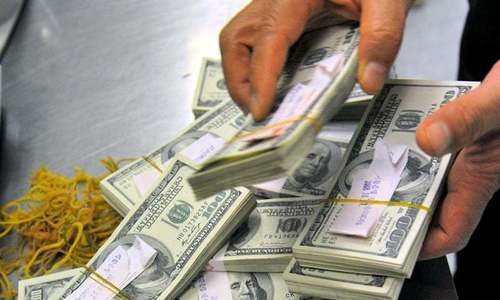Hot Money
KARACHI: Recent reports from a brokerage house indicate a significant uptick in foreign investment in Pakistan’s Treasury Bills (T-bills), reaching levels not seen since 2020.
The resurgence of international interest in government notes signals the return of hot money, propelled by attractive yields and currency stability.
This surge in foreign investment comes on the heels of a staff-level agreement reached between Pakistan and the International Monetary Fund (IMF).
The agreement, reached in March, pertains to the second and final review of a nine-month, $3 billion stand-by arrangement. Pending approval by the IMF’s executive board, this agreement is expected to inject approximately $1.1 billion into Pakistan’s economy.
Data from the State Bank of Pakistan reveals a notable net inflow of $82 million in T-bills between March 1 and 22, with total inflows reaching $126 million since the beginning of 2024. During the nine months of fiscal year 2023/24, T-bill inflows have totaled $124 million.
Brokerage firm Topline Securities attributes the increased foreign investment to high local interest rates and a stable rupee, facilitating investments in local T-bills through Special Convertible Rupee Accounts (SCRA). The phenomenon of carry trades, common in countries with high interest rates, is gaining traction in Pakistan amidst favorable conditions.
With the anticipation of securing a new long-term IMF deal, analysts foresee the influx of more funds into Pakistan’s high-yielding government papers, providing short-term support to the country’s foreign exchange reserves and currency.
The recent decrease in Pakistan’s inflation rate to 20.68 percent in March, the lowest level in nearly two years, has contributed to positive sentiments, driven by higher borrowing costs curbing domestic demand and economic growth.
The State Bank of Pakistan’s decision to maintain its benchmark interest rate at a record 22 percent further underscores efforts to combat stubborn inflation.
Analysts interpret the recent inflation figures as signaling the potential for a rate cut in upcoming monetary policy reviews, fostering optimism for economic recovery and stability.
As Pakistan prepares for talks with the IMF for a longer-term bailout, Prime Minister Shehbaz Sharif’s government remains committed to essential policy reforms aimed at managing debt servicing, building reserves, and controlling deficits.
I am a dynamic professional, specializing in Peace and Conflict Studies, Conflict Management and Resolution, and International Relations. My expertise is particularly focused on South Asian Conflicts and the intricacies of the Indian Ocean and Asia Pacific Politics. With my skills as a Content Writer, I serve as a bridge between academia and the public, translating complex global issues into accessible narratives. My passion for fostering understanding and cooperation on the national and international stage drives me to make meaningful contributions to peace and global discourse.










